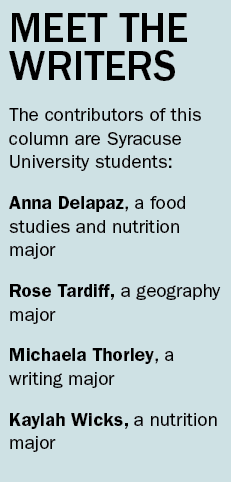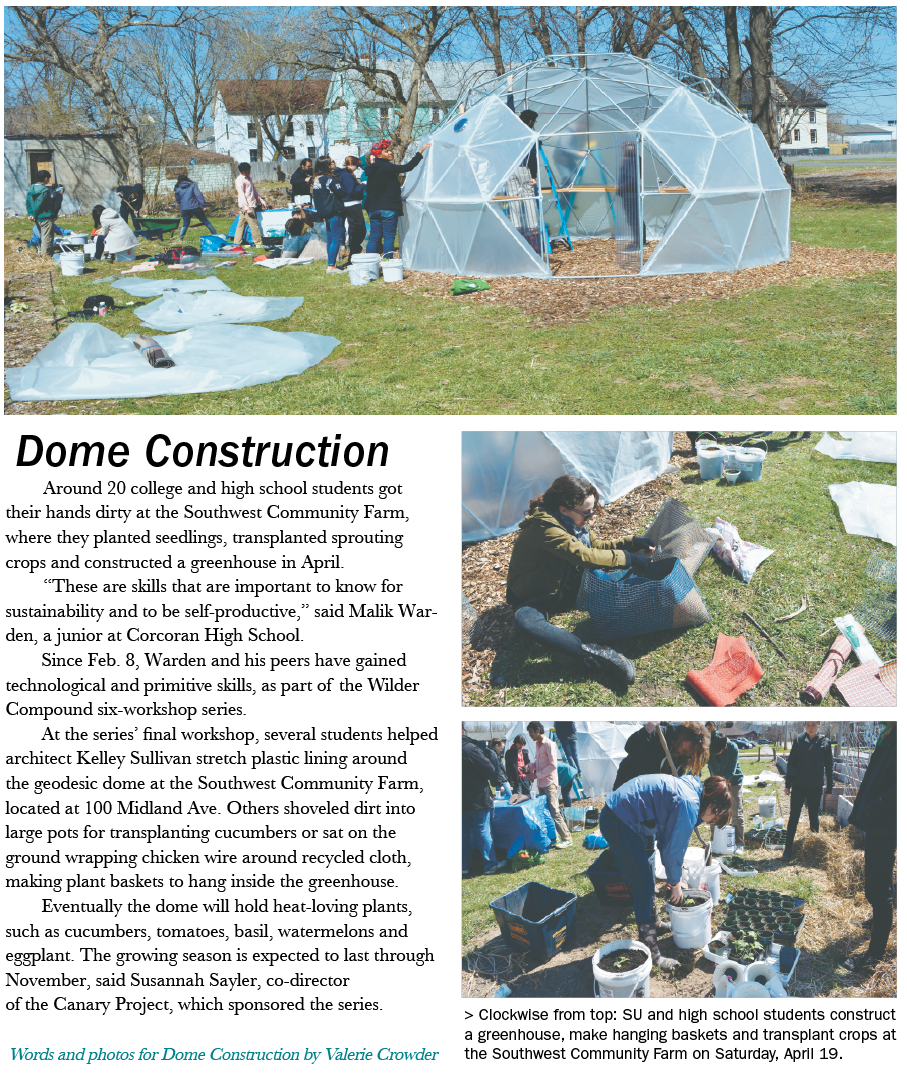College and city students partner to learn about sustainability, healthy living
As part of a Syracuse University course that examines the relationship between cities and food, students partner with community collaborators to develop a final project that supports food systems interventions throughout Syracuse.
Our group is partnering with Modern Primitive Exchange, an art and design forum, on the Wilder Compound project. This project features hands-on workshops that bring SU students together with Syracuse high school students to collaboratively learn about sustainability. Six workshops throughout the spring were offered from teaching participants to build a bicycle-powered phone charger to an earth oven and construction of a geodesic greenhouse dome. This Saturday will mark the conclusion of the series with a final celebration.
Working with the Southwest Community Farm, the site of many Wilder workshops, we are creating a modular curriculum for use and adaptation through Modern Primitive Exchange and for future programming at the Southwest Community Farm.

Modules are grounded in the concept of community knowledge. The chosen workshop topics are based on individual student interests and are informed by the Southwest Community Farm, the Wilder workshop series and existing workshop modules.
Storytelling Module
From the perspective that everyone must eat and everyone has a story to tell, the storytelling module strives to connect community, food and stories through reflective activities and dialogue.
The module is designed so people may begin to situate themselves in different communities and consider the ways in which buying food, making food and eating food may be used as a communal tool, and how this differs depending on the community or the circumstances at hand.
Food Nutrition Module
This module focuses on providing nutritional education in a fun and engaging way. The module is designed to be adapted to diverse communities and age groups. The workshop will gauge how much participants know about the food they eat and how it is prepared. Participants will also gain an understanding of healthy food options, food groups and portion sizes. Group discussion and informational handouts will make up part of the education process.

Community and Food Module
This module was created to help define “community” through the lens of food. This module provides an activity designed to build connections by identifying commonalities.
The activity leads to a facilitated discussion where concepts of community can be discussed among the group and such concepts can be related to how food and health are intertwined.
Geography of Food Module
This module centers on defining and visualizing our local food environment — the physical and social factors related to people’s food choices and health. The primary activity of the module is measuring the local food environment by mapping participants’ perception of food resources.
The hope is to collectively reach a more nuanced understanding of our food environments.
— Guest Column by Anna Delapaz, Rose Tardiff, Michaela Thorley and Kaylah Wicks
 The Stand
The Stand


